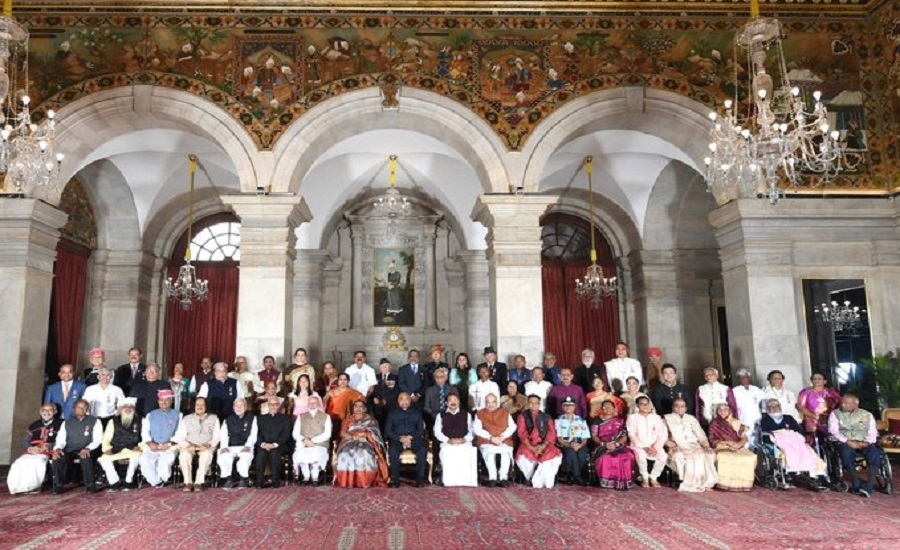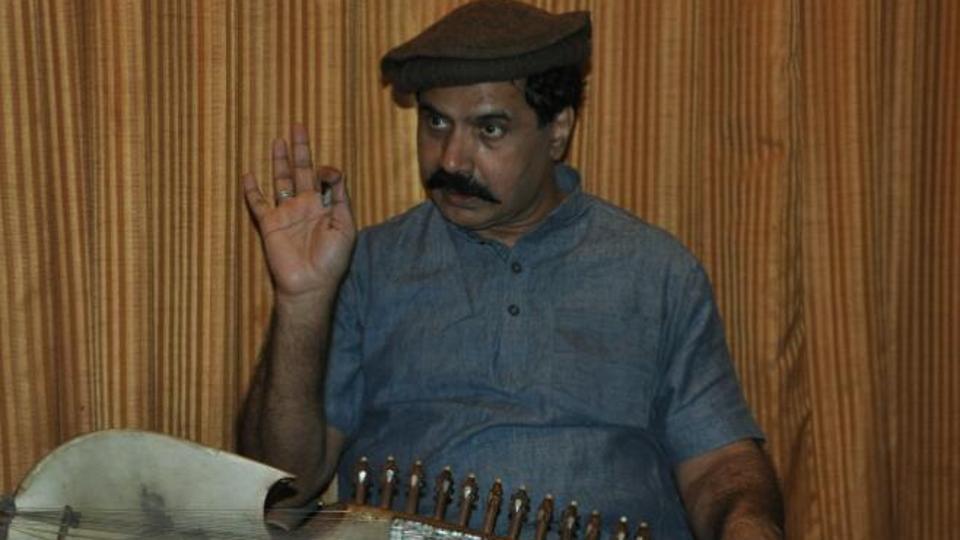INDIA :

Winners receive awards from President Kovind at Rashtrapati Bhavan
New Delhi :
President Ramnath Kovind on Monday presented civilian awards or Padma awards to 119 personalities at a ceremony held at Rashtrapati Bhavan New Delhi. The list includes foreigners, artists, sportspersons, people from film industry, public servants, activists. The awardees also include eight Muslims from different walks of life.
Eminent Islamic scholar Maulana Wahiduddin Khan, who passed away in April 2021 of Covid-19 complications, was awarded Padma Vibhushan, the second highest civilian award after Bharat Ratna. Prominent Shia leader and scholar Maulana Kalbe Sadiq, who passed away last year, got Padhma Bhushan, the third highest civilian award.
The Padma Shri list of 102 includes six Muslims. These are Ali Manikfan, Gulfam Ahmed, Lakha Khan and Ghulam Rasool Khan and two from Bangladesh Sanjida Khatun and Col Quazi Sajjad Ali Zahir.
Ali Manikfan has been awarded for hiscontribution at grassroots level innovations in Lakshadweep. He was born in 1938 into an aristocratic family on Minicoy Island of Lakshadweep. Manikfan is multi-talented — marine researcher, ecologist, shipbuilder, agriculturist, and a polyglot.
Gulfam Ahmed hails from Uttar Pradesh and has made contributions in the field of Art. He is a Sarod and Afghani Rabab player and is known for promoting Indo-Afghan cultural relations.
Lakha Khan, 80, who has been conferred with Padma Shri for his contribution in art is a Rajasthan-based musician who plays Sindhi sarangi and sings folk songs. He comes from the Manganiar community among Muslims that is traditionally associated with begging. He was born into the family of musicians and was trained from childhood.
Ghulam Rasool Khan is a handicraft artist from Srinagar, Kashmir. He is working to conserving Jamawar Patchwork, the oldest form of Kashmiri shawl technique. Before getting Padma Shri Khan won the National Award for Textile. Khan has a reputation of creating masterpieces and rare artefacts in the Jamawar craft.
Sanjida Khatun, Col Quazi Sajjad Ali Zahir from Bangladesh have been awarded for their contribution in art and public service respectively.
Snajida Khatun, born in 1933, is musicologist and teaches Bengali literature at the University of Dhaka. She was also one of the founders of Mukti Sangrami Shilpi Sangstha that fought Pakistani forces in 1971 Bangladesh war.
Col. Zahir who was a soldier in the Pakistani army rebelled and joined the forces fighting for Bangladesh’s liberation. He defected from the army and moved to India where he became a key person in the rebellion.
source: http://www.clarionindia.net / Clarion / Home> Big Story> India / by Team Clarion / November 08th, 2021









